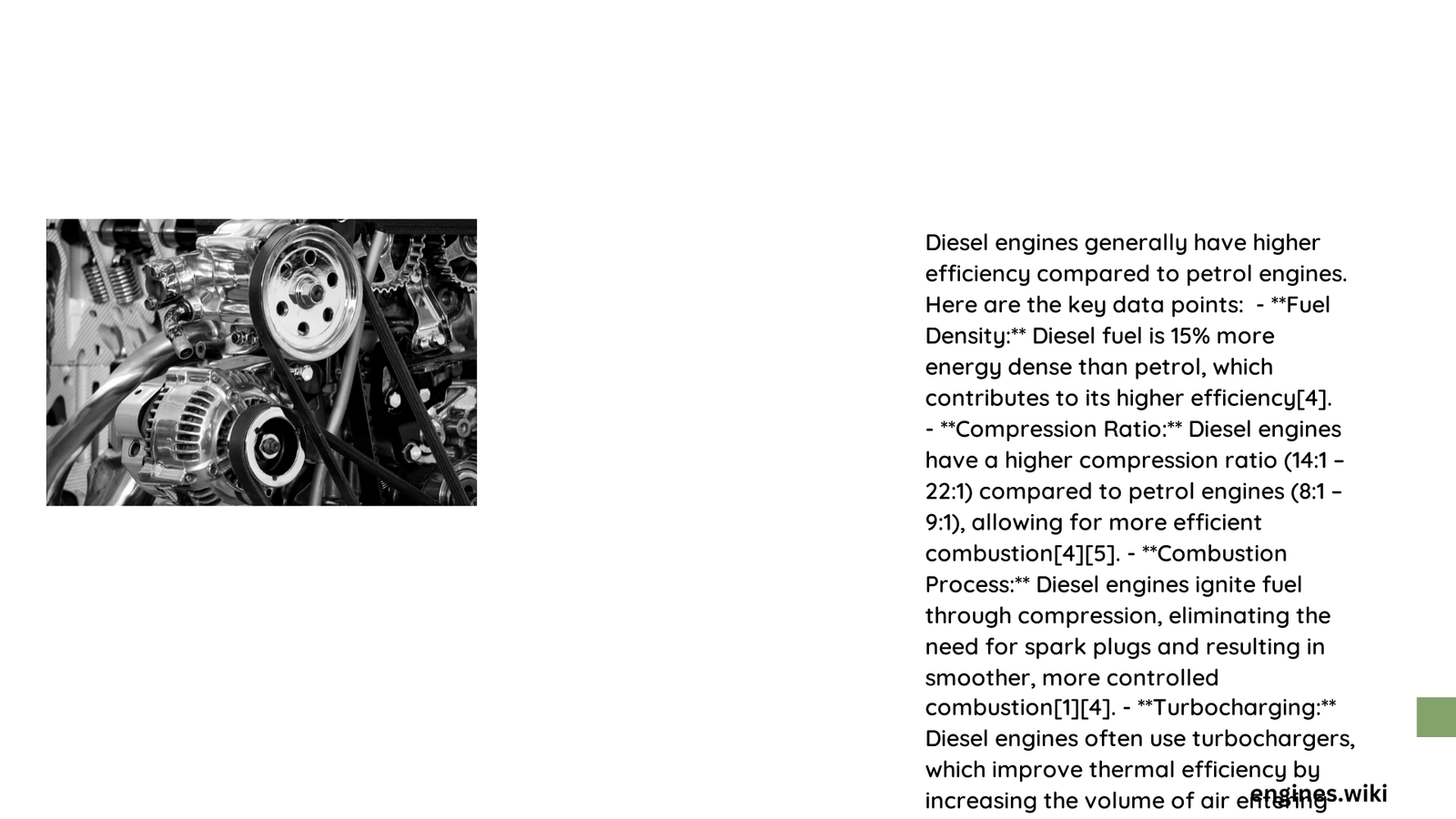In the complex world of automotive engineering, determining the highest efficiency between petrol and diesel engines requires a nuanced analysis of fuel economy, technological advancements, and real-world performance. This comprehensive exploration reveals that efficiency isn’t just about raw numbers, but a sophisticated interplay of design, technology, and practical application across different vehicle categories and driving conditions.
What Makes an Engine Truly Efficient?
Efficiency in automotive engines goes beyond simple fuel consumption metrics. It encompasses:
- Thermal Efficiency: How effectively heat energy converts to mechanical work
- Fuel Conversion Rate: Percentage of fuel transformed into usable power
- Technological Sophistication: Advanced engineering techniques
Petrol Engine Efficiency Landscape
Which Petrol Engine Leads in Efficiency?
The Mitsubishi Mirage emerges as a standout performer in petrol engine efficiency:
| Metric | Performance |
|---|---|
| Fuel Economy | 6.2 L/100 km |
| MPG (U.S.) | 37.9 mpg |
| Engine Type | Small Displacement |
Key factors contributing to its exceptional efficiency include:
– Lightweight vehicle design
– Advanced fuel injection technology
– Optimized combustion chamber geometry
Diesel Engine Efficiency Dynamics
What Makes Diesel Engines Competitive?
The Chevrolet Silverado 1500 with its 3.0L LZ0 turbodiesel engine represents diesel efficiency:
| Performance Metric | Value |
|---|---|
| City MPG | 23 |
| Highway MPG | 33 |
| Combined Efficiency | 23.5 |
Diesel efficiency advantages:
– Higher compression ratios
– Superior torque generation
– More energy-dense fuel
Technological Innovations Driving Efficiency

Hybrid and Advanced Technologies
Modern engines leverage multiple strategies:
– Direct fuel injection
– Variable valve timing
– Turbocharging
– Electrification
Cost-Effectiveness Analysis
Financial Considerations
Petrol Engine (Mitsubishi Mirage):
– Initial Cost: $15,000 – $20,000
– Fuel Cost (100,000 miles): $9,226
Diesel Engine (Chevrolet Silverado):
– Initial Cost: $40,000 – $50,000
– Fuel Cost (100,000 miles): $14,892.50
Environmental and Regulatory Challenges
Emerging trends show:
– Stricter emissions standards
– Increasing electrification
– Shift towards hybrid technologies
Conclusion: No Universal Winner
Efficiency depends on:
– Vehicle type
– Driving conditions
– Technological implementation
The most efficient engine varies based on specific requirements and usage scenarios.
Recommendations
- For compact cars: Prefer advanced petrol engines
- For heavy-duty vehicles: Consider diesel options
- For maximum efficiency: Explore hybrid technologies
Reference:
– Natural Resources Canada
– ProSource Diesel
– BumbleAuto
